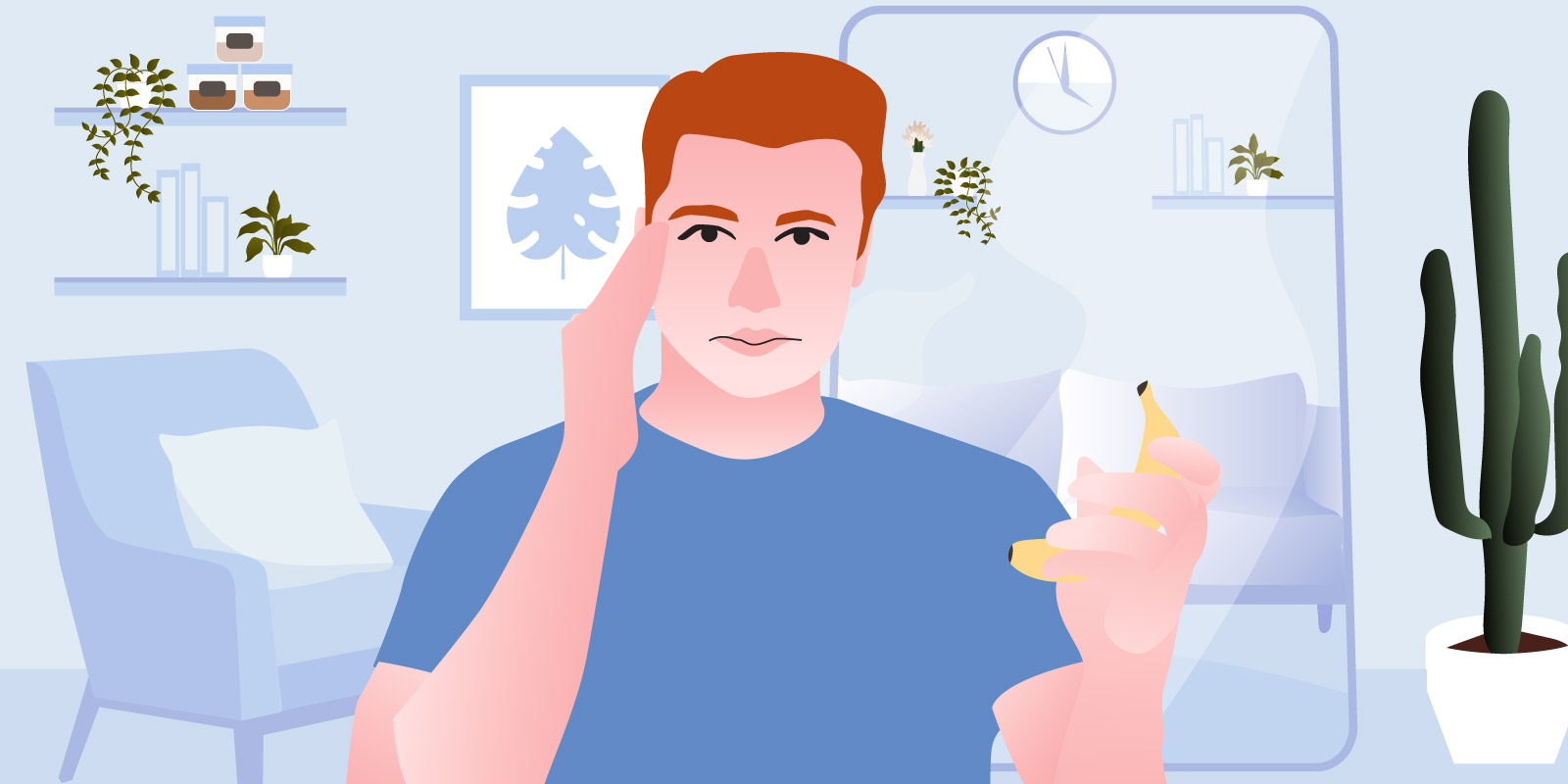
In an age when the importance of self-love is emphasized on an almost daily basis, it’s nice to see people value themselves and prioritize their needs and wants. However, there is a point where self-love tips itself over to the extreme of narcissism. You may think that narcissists will care solely for themselves, they will enter into romantic relationships.
While an awareness of self-worth is important in creating and maintaining healthy relationships, a narcissist will often over-value themselves to the detriment of the relationship. Signs of narcissism may present themselves early when you’re in the talking stages or evaluating your current relationship. Here’s how to spot those signs and how to deal with it.
What is Narcissistic Personality Disorder (NPD)?

Arrogant, self-centered behavior and thinking, a lack of empathy for others, and a constant need for admiration are signs that a person may have narcissistic personality disorder (NPD). A lot of people with NPD are described as manipulative, cocky, selfish, and demanding. This pattern of thinking and behaving surfaces in every area of a narcissist’s life – whether it be in their friendships, work, and even romantic relationships.
People who have narcissistic personality disorder are averse to changing their behavior even when it is clearly the cause of problems. They refuse to take responsibility for their faults and will turn the blame on others. They are extremely sensitive to criticism and react badly. They become defensive and even offensive when faced with misunderstanding or perceived slights that they see as personal attacks.
Causes of Narcissistic Personality Disorder

Researchers agree that genetics and environment play a factor in the development of NPD even though no single cause has been identified. People who have Narcissistic Personality Disorder have been found to have less volume of gray matter in the part of the brain that is related to empathy, compassion, emotional regulation, and cognitive functioning.
According to Dr. Kristina Hallett, personality disorders are diagnosed at 18 years and older. Narcissistic traits are typical in young children and don’t mean that they will develop into a full-blown personality disorder, and that’s why it is difficult to diagnose early. Scientists do believe that when interpersonal development is compromised is when the full onset of NPD may occur. Here are a few causes to consider:
- Excessive parental pampering
- Childhood neglect or abuse
- Receiving excessive praise from parents or others focused on looks or abilities
- Unrealistic expectations from parents
- Learning manipulative behavior from parents or peers
- Cultural influences
Narcissistic Personality Subtypes
Narcissism is more than just physical vanity. Being aware of the subtypes of people with NPD helps you understand what makes the person that way. There are different subtypes of narcissists and here is how to identify them.
Overt narcissists are the stereotypical over-the-top, attention-seeking type—and high-functioning, meaning those who may use traits such as competitiveness and exploitation to succeed in a profession or endeavor.
Covert narcissists are also known as vulnerable narcissists and are the exact opposite of the stereotypical narcissist. Almost a direct opposite to the overt narcissists, the covert narcissists tend to be shy, hypersensitive to how others perceive them, self-effacing, and chronically envious. They often think they’re victims and that their pain or suffering is worse than everyone else’s.
Cerebral narcissists believe that they are smarter than everyone else and derive their self-importance from their perception of their intellect.
Somatic narcissists obsess over physical appearance and criticize others based on their appearance. They get a high sense of self-worth from their bodies and love compliments about it.
Spiritual narcissists will overemphasize their level of spirituality or closeness to the higher beings. They’ll use spirituality or religion to intimidate and justify harmful behaviors to others that can creep in when an individual takes a “holier than thou” stance. They overemphasize their level of spirituality or closeness to God. Harmful behaviors can happen when, for example, a church leader claims they had a vision from God about someone else. They also tend to think they’re in a “higher” position to use Biblical passages to control, hurt, or shame someone.
Signs You Might Be In a Narcissistic Relationship
Narcissism is a label that gets thrown around plenty of times, especially when a person seems conceited. A narcissist’s self-centered way of thinking and behaving surfaces in every part of their life, from work to family and romantic relationships.
People involved with narcissists usually have no choice but to bend to their will in order to avoid conflict – sometimes they don’t even realize that that’s what they are doing. By understanding the signs of a narcissistic relationship, you can protect yourself from power plays and manipulation to better establish healthy boundaries.
1They were incredibly charming at first.

Perhaps they texted you constantly or told you they loved you within the first month — something experts refer to as “love bombing.” Love bombing is the practice of overwhelming a person with adoration designed to manipulate the receiver of such adoration into spending more time with the bomber. Narcissists will shower you with love and adoration until you disappoint them. How they treat you has nothing to do with you and more to do with how they see themselves.
-
₱3,400.00
-
₱5,455.00
-
₱5,600.00
-
₱12,600.00
2They have a superb sense of self-importance.

Narcissists have an unrealistic sense of superiority. They believe that their uniqueness and the things that make them special can only be understood by other people that are like them. They only want to be associated with high-status people, places, and things.
3They live in a fantasy world that supports their grandiose delusions.

The world narcissists live in is entirely different from the reality we know and understand. It’s a universe created through self-deception and magical thinking. They spin stories and fantasies of their own glory, power, attractiveness, success, and ideal love that allow them to feel like they are special and in control. This protects them from their feelings of emptiness and shame. Any facts and opinions that contradict their “truth” are rationalized to fit their narrative.
4They lack empathy.

The lack of empathy, or the ability to feel how another person feels, is another sign of a narcissist. Narcissists lack the skill to make you feel validated, understood, or accepted because they don’t grasp the concept of feelings.
-
₱14,500.00
-
₱5,600.00
-
₱5,700.00
-
₱12,300.00
5They need constant admiration and praise.

A compliment is nice every now and then, but that is not enough for narcissists. They need a constant stream of compliments and attention to feed their ego. To satisfy this need, they’ll surround themselves with yes men that will cater to their craving for admiration. Narcissistic relationships are very one-sided, and they’re never concerned about how they add to the lives of their admirers. Any diminishment or interruption of admiration is seen as a betrayal by the narcissist.
6They don’t have a lot of long-term friends.

Most narcissists will only have casual acquaintances, people that they trash-talk, and full-on enemies. So they may lash out when you want to spend time with the other important people in your life and may claim that you’ve been neglecting them and may even make you feel bad for being with your friends or other people besides them.
7They frequently intimidate and belittle others.

Narcissists like to feel like they are the best person in the room. They’ll feel threatened when someone else is more liked, more popular, or even more confident. They feel threatened by people that refuse to pander to them or challenge them. They react with contempt and out you down. They may be passive-aggressive, condescending, or dismissive of you. They will attack and bully and threaten to force the other person to back down or retreat into themselves.
8They exploit others without shame or guilt.

Because of the narcissist’s lack of empathy, they view the people in their lives as objects—there to serve their needs. As a result, they don’t think twice about taking advantage of others to achieve their ends. Sometimes this interpersonal exploitation is malicious, and often it is plain oblivious. Narcissists don’t think about how their actions affect other people. They still won’t truly get it if you point it out because they only understand their own needs.
-
₱9,500.00
-
₱1,995.00
-
₱2,745.00
-
₱2,395.00
9They hog conversations, talking about how great they are.

Narcissists love to talk about their achievements with grandiose constantly. They like to parade themselves and advertise their intelligence and superiority. It helps it seem like they’re more self-assured than they are. They’re so focused on their own greatness and talking themselves up so they don’t listen to you. Not only will they not stop boasting about themselves, they also will not engage in conversations that highlight you.
10They think they’re right about everything.

The narcissist is always right. Debating and compromising with them is useless because there is nothing you can say or do that will convince them otherwise. More often than not, you’ll tire of the conversation and just agree to disagree, but they’ll see it as their teaching you the truth. Since narcissist thinks they’re never wrong, don’t ever expect them to apologize about anything.
How To Deal With a Narcissistic Partner
Narcissists can be very magnetic and charming. They can create and present themselves as charming and more good-natured than they actually are. Their confidence and dreams are seductive – especially if your own self-esteem is shaky. Getting caught in the narcissist’s snare is easy because you believe that they will fulfill your need to feel more significant. It’s important to realize that it’s all a fantasy that can hurt you more than help. Here are some ways to deal with being in a narcissistic relationship.
They are very good at creating a fantastical, flattering self-image that lures you in. Their apparent confidence and lofty dreams can be attractive, but the shakier your self-esteem, the more seductive the allure. It’s easy to get caught up in a narcissist’s web, thinking that they will fulfill your longing to feel more important, more alive. It’s important to realize that it’s all just a fantasy and a costly one at that. When you notice the signs of a narcissistic relationship, here are the ways to help you deal with it:
1Observe how the narcissist treats others.

If the narcissist is disrespectful, hurts, and lies to others, at some point, they will treat you the same way. Don’t fool yourself into thinking that you’re the exception. See your partner not for who you want to be, but for who they are. Narcissists are very resistant to change, so consider whether or not you can live being treated that way.
2Identify your boundaries.

Healthy relationships are based on mutual caring and respect. Relationships with narcissists are pretty one-sided because they are not able to reciprocate.
A long-standing relationship will have likely taken a toll on you and how you view relationships. It is not easy to take back control. Start by identifying what your goals are and identify the possible roadblocks. What are the most important changes you want to achieve? What is the balance of power in your relationship and how does that affect your plan? Are you able to enforce your new boundaries?
Once you are able to answer these questions, you can evaluate your choices and develop a realistic plan.
-
₱1,495.00
-
₱2,445.00
-
₱1,995.00
-
₱2,445.00
3Consider a gentle approach in setting your boundaries.

If preserving your relationship is vital, you will have to tread lightly when establishing a new set of boundaries with your partner. Deliver your message calmly and as gently as possible. Try to focus on how you feel when confronted with that behavior instead of the intentions behind them. Remain calm no matter how they respond and try to walk away if necessary. Revisit the conversation when you are both ready.
4Be prepared for changes in the relationship.

Narcissists are used to calling the shots so they will react negatively when you attempt to take control of your own life. So, to punish you, they may increase their demands in other aspects of your relationship, distance themselves, or employ other means of hurting you so manipulate you or giving into their demands and expectations. It’s important to remember that no one deserves to be threatened, bullied, or verbally and emotionally abused in a truly healthy relationship.
5Don’t buy into the narcissist’s version of who you are.

Narcissists dwell in delusions of self-grandeur, and that blurs their views of other people. Don’t let their blame game undermine your self-esteem. Refuse to accept undeserved responsibility, blame, or criticism. That negativity falls on the narcissist to keep.
6Focus on yourself.

Let go of the need for approval from external forces. Instead of losing yourself in the narcissist’s delusions, focus on the things you desire for yourself. What are the things you want to change in your life? What talents would you like to develop? Which fantasies do you have to give up to create a more fulfilling reality? Make a life aside from your relationship that involves friends, work, hobbies, and other interests. So whether you stay or leave after noticing the signs of it being a narcissistic relationship, fulfilling life can supplement or replace your relationship.
-
₱12,600.00
-
₱5,700.00
-
₱11,990.00
-
₱15,499.00
7Avoid arguing with a narcissist.

No matter how rational or clear your argument is, the narcissist will likely not hear you. Arguing your point may escalate the situation in a very unpleasant way. Don’t waste your breath if this happens. Tell the narcissist you don’t agree with their assessment, then move on.
8Leave the relationship if necessary.

If keeping the relationship is at the detriment of your well-being, then you always have the option to leave it. When you decide to leave, be certain you’re ready to end the relationship and not be lured back. If you’re unsure whether you want to leave, communicate your concerns to your partner to improve your relationship and evaluate whether it’s salvageable. Regardless of your decision, your mental health needs to redeem your self-esteem and autonomy.
9Learn what healthy relationships feel and look like.

In a reciprocal relationship, you will feel respected, listened to, and free to be yourself. If you’ve been in a long-term narcissistic relationship, the toxic pattern of dysfunction may already feel comfortable to you. Just remind yourself that as familiar as it feels, it also causes damage to your well-being.
-
₱4,045.00
-
₱4,750.00
-
₱3,395.00
-
₱2,695.00
10Seek support.

During your relationship, the narcissist may have damaged your relationships with friends and family or limited your social life. Narcissists tend to isolate the people in their lives to control them better. If this is your situation, you will have to invest time into cultivating new relationships or rebuilding lapsed friendships. But whatever your circumstances, know that you’re not alone. Even if you can’t reach out to old friends, you can find help from support groups or helplines.
Takeaway
Narcissists can be destructive not only to themselves but to those around them. Chances are, their narcissistic personality may also sprout from varying causes such as upbringing and environment. It’s important to notice the signs of a narcissistic relationship early on to avoid further unnecessary conflict. Through understanding what causes such actions, you can address them in your daily life and set boundaries if needed.
Share this article to help spread awareness about this topic and click here for more articles like this one.
























